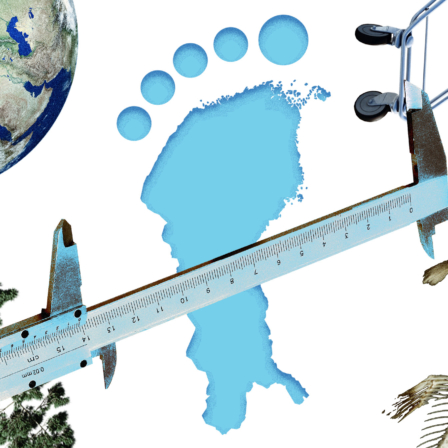Nature and biodiversity are declining at an alarming rate globally, including in Finland. Biodiversity loss has far-reaching impacts on our economy, health and well-being. This is made clear by the articles written by economics and society influencers in a memorandum (summary in English) compiled and published by Sitra.
Many of the authors point out that the economy is entirely dependent on nature. Nature constantly provides humanity with a huge range of vital services, such as food, energy, water purification, medicinal plants, carbon sequestration and pollination of food crops. In economics, the resources and services provided by nature are known as natural capital.
Mikko Spolander, Director General of the Economics Department at the Ministry of Finance stresses in his article that natural capital is diminishing as we consume nature faster than it regenerates.
“The progression of biodiversity loss will lead the economy and public finances down a path of stagnation and endanger the well-being of future generations. The key problem is that there is no price for biodiversity, which is reflected in unsustainable choices in the economy,” writes Spolander.
The task of the public authorities, he argues, is to guide production and consumption by means of economic policy so that biodiversity will be safeguarded. At the same time, it must be ensured that the transition to a more ecologically sustainable economy takes place in an equitable manner.
In the collection of articles, the authors also estimate the implications of biodiversity loss for the financing system and investors. Olli Rehn, Governor of the Bank of Finland, writes that if we do not ward off biodiversity loss, the cost will be enormous. He says that central banks should take into account the risks of biodiversity loss for financial stability.
“Problems caused by biodiversity loss will affect investments, returns and the risks associated with them around the world,” writes Jouko Pölönen, President and CEO of the pension insurance company Ilmarinen. “Long-term investors must therefore take biodiversity into account not only to safeguard nature but also to secure their own operations and, for example, the pensions of Finnish people.”
Solutions from the economy for stopping biodiversity loss
Biodiversity loss can be halted through collaboration. In December, new hope was given by the UN Biodiversity Conference held in Montreal, where nearly 200 countries agreed on targets to halt biodiversity loss by 2030 and to put nature on the road to recovery.
At the conference, business and financial leaders urged countries states to ensure that ambitious nature targets would be set. Finnish businesses were also involved (link in Finnish).
Kaisa Hietala, a corporate board professional working with large international companies writes that businesses must acknowledge the need for change and make them voluntarily early on, before it becomes an operational imperative. According to Hietala, the capacity for change can also build a competitive advantage that is difficult to replicate.
Sitra President Jyrki Katainen writes that the market economy must be harnessed to strengthen nature. Public funds will not be enough to halt biodiversity loss, but companies and private money will also be needed.
There are a wide range of solutions for halting biodiversity loss, from legislation to economic governance. It is also essential to accelerate the adoption of circular economy solutions, for instance to make smarter use of materials and save energy.
Finland is committed to halting biodiversity loss by 2030. Outi Haanperä, Project Director at Sitra, stresses that the rup-up to the parliamentary elections this spring offers an excellent opportunity to debate the measures to prevent biodiversity loss during the next government term.
“In the spring election debates, it is important to remember that halting biodiversity loss is a matter of responsible financial management. Without nature, the wheels of the economy cannot turn. The value of nature must be made visible and must guide economic decision-making,” says Haanperä, who holds a doctorate in economics.
The collection of articles also addresses the role biodiversity plays in food security, health, forests and waterbodies.
Sitra’s memorandum consists of nine articles, the authors of which are:
- Johanna Buchert, President and CEO, Natural Resources Institute Finland
- Hanna Haveri, Planetary Health Physician, Wellbeing services county of Päijät-Häme
- Kaisa Hietala, professional in corporate board work
- Jaana Husu-Kallio, Permanent Secretary, Ministry of Agriculture and Forestry
- Jyrki Katainen, President, Sitra
- Jouko Pölönen, President and CEO, Ilmarinen Mutual Pension Insurance Company
- Olli Rehn, Governor of the Bank of Finland
- Leif Schulman, Director General, Finnish Environment Institute
- Mikko Spolander, Director General, Economics Department, Ministry of Finance
Read the memorandum:
Nature safeguards our economy (summary in English)



















Recommended
Have some more.